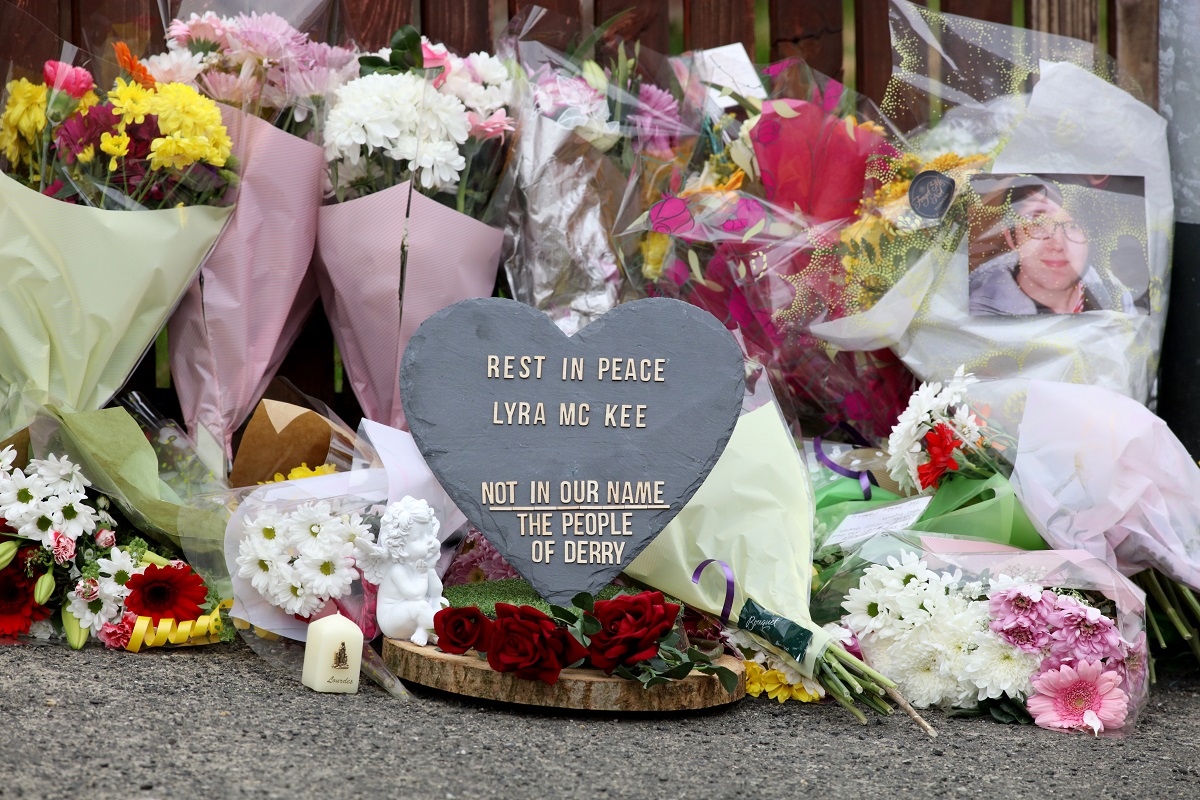The murder of a journalist is always hard to bear for the profession anywhere in the world. And the shooting of the 29-year-old Northern Irish journalist, Lyra McKee, underlines a hideously tormented Easter… from Londonerry to Lanka (about which comment will have to await detailed information).
That a life has been cut short in its prime would suggest that the Good Friday agreement, so-called, that was inked in 1998 with the hope of peace in a historically troubled swathe of the United Kingdom, can scarcely be taken for granted.
Advertisement
While the “Troubles”, so-called, may have officially ended with the agreement, the risk of further violence is dangerously real. Which explains the fatal shot that was targeted at Lyra while on assignment. The killing, therefore, assumes a dire significance in the midst of the Brexit imbroglio.
The significance is political as much as personal, and this has deepened the enormity of the tragedy since last Friday. The parties involved in the Brexit discord have been floundering in their quest for a formula on Northern Ireland as they are in the matter of Customs.
The death of a young journalist at the hands of dissident republicans is a tragedy linked to the province’s ongoing political crisis. She was determined to rise above the sectarianism and narrowmindedness of the past. Her investigation of children who vanished during the “Troubles” and evocatively titled The Lost Boys, is scheduled to be published next year.
Police have blamed dissident republicans. Saoradh, a party representing the New IRA’s thinking, has claimed that Lyra was the accidental victim of a “republican volunteer” seeking to defend the community from “heavily armed Crown forces”.
The contention has been readily countered by the mainstream political spectrum. The DUP and Sinn Féin leaders, pre-eminently its president, Mary Lou McDonald, appeared together at a vigil, while Northern Irish parties issued a rather unusual joint statement condemning the attack on “peace and democratic processes”.
And so it was. In the immediate aftermath of the killing, traditional rivals are on the same wavelength. Politicians on both sides of the Irish Sea now have the opportunity to address the broader political context in which grievances have festered, and violence has increased.
Northern Ireland’s political life has been suspended since 2017 when the Stormont assembly collapsed. The crisis has exacerbated to the point where it is difficult to envisage a way back to the power-sharing arrangement that is the only bridge to a peaceful future. The crisis, therefore, has been as constitutional as it is almost intractable.
In death, Lyra McKee personifies the United Kingdom’s virtually incurable sore. Her death has resonated so widely because of her own remarkable qualities, personal and professional. But its timing reinforces the powerful warning that it sends.
The Good Friday agreement is critical but it has not by itself been able to heal Northern Ireland’s divisions. A young life has been lost; the urgent task now is to safeguard the agreement.











